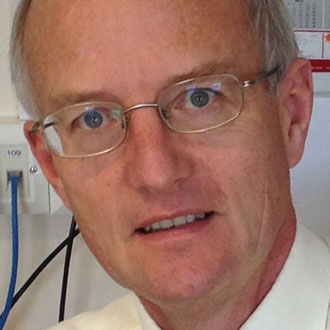Exclusive GP practices in one area have been asked to sign up for a local contract deal within days which will allow them to drop the majority of the QOF for this financial year so they can focus on developing local services, Pulse has learnt.
GPs in Somerset have received letters giving them until 13 May to sign up for the new package, which will enable the local CCG to quickly switch off the bulk of QOF reporting if NHS England gives the scheme the final go-ahead after a meeting of primary care chiefs next week.
Practices previously suspended QOF reporting altogether in January, after agreeing to help prepare plans for an alternative package of work in its place, leading many areas to seek similar deals without success.
GPC has previously warned against local areas negotiating their own contracts.
Under the final proposals for the alternative scheme, which are now under scrutiny by the NHS England board, GPs will be required to report a small number of QOF indicators considered ‘core clinical work’, outside of which practices have freedom to choose which parts of the framework they want to maintain to ensure the best care for their patient population.
Instead of the bulk of QOF work, practices will provide quarterly reports on their progress in developing improved services for the local population – around three main themes of integration between general practice and urgent care services, improving personalised care planning for patients with long-term conditions and ensuring sustainability of practices.
Dr Harry Yoxall, medical director of Somerset LMC, told Pulse: ‘This is very much developmental work, moving away from most of the QOF clinical indicators. Understandably the area team wants to make sure practice quality is maintained and some indicators will continue to specifically report on, things everyone agrees are good markers of good clinical care – so things like diabetes markers, serious mental illness markers – those things that are core to the way in which good clinical practice is delivered.’
Practices will continue to receive their monthly aspiration payments for QOF, but instead of being paid once at the end of the financial year the area team will pay them at the end of each quarter upon receipt of a satisfactory report of the preceding three months’ work.
Dr Yoxall said: ‘The amount of money available is the same as NHS England would pay for QOF work. The three monthly report has got to show some progress – the development of a plan over the first three months and how that plays out over the 12-month period.
‘This is not about saving “x” number of lives by day 365 – it’s more about saying, “here at the end of the year is a plan for dealing with this area, this is what we our experience has shown and this is what the benefits and constraints of this particular approach could be”.’
‘Practices will continue to be doing a lot of the essential key work in QOF but what they won’t be doing is reporting in each of the domains – they will only be reporting on a limited number.’
Related stories
Analysis: QOF devaluation leaves practices out of pocket
Somerset’s preparatory phase for a potential QOF replacement for 2014/15 over-ran into April – meaning GPs have had to go back to reporting QOF according to the new 2014/15 contract, in case the new scheme fell through.
The LMC had hoped to get sign-off for the scheme shortly after Easter, but practices have been left in limbo over the past month while NHS England chiefs deliberate over the details. Whether it can start now hinges on NHS England executives who are meeting next week.
An NHS England spokesperson said: ‘NHS England will be considering the Somerset QOF proposition with further discussions taking place at the Primary Care Oversight Group on Thursday 15 May.’
Dr Nick Bray, Somerset LMC vice chair, told Pulse: ‘We anticipate that we should have a final decision in mid-May from NHS England when it has been to their executive.’
Dr Bray said practices had been sent the draft scheme and advised the final document ‘is not likely to change in any way’.
He said: ‘Practices have been deciding amongst themselves and within federations whether they wish to take part and have been asked to indicate their intentions by 13 May, so that assuming the go-ahead is given, the scheme can start immediately.’
The local bid to drop the large majority of QOF comes after health secretary Jeremy Hunt generated headlines for saying he would be in favour of scrapping QOF altogether, ‘if he could’.
But the GPC warned practices to think carefully before signing up for the scheme.
Dr Richard Vautrey, GPC deputy chair, said: ‘We continue to believe that general practice gains its strength through a national contract. We only need to look at the losses and instability PMS practices now face to see what happens when the initial attraction of a local contract turns sour.
‘We believe Somerset practices should think long and hard before stepping down this road that could have serious and damaging implications for all practices in England.’
Pulse October survey
Take our July 2025 survey to potentially win £1.000 worth of tokens













